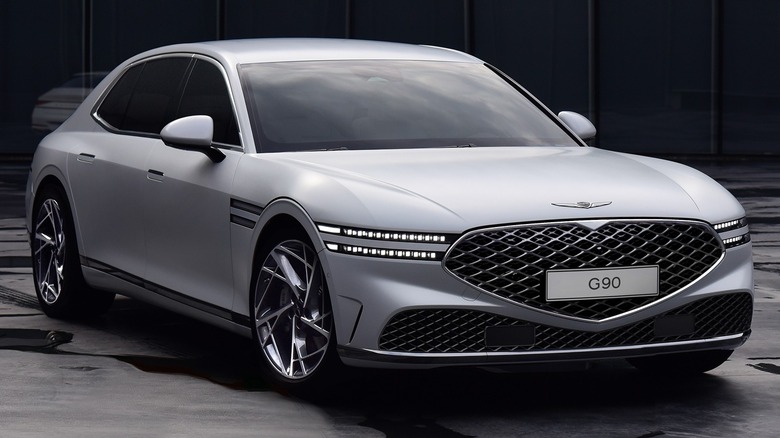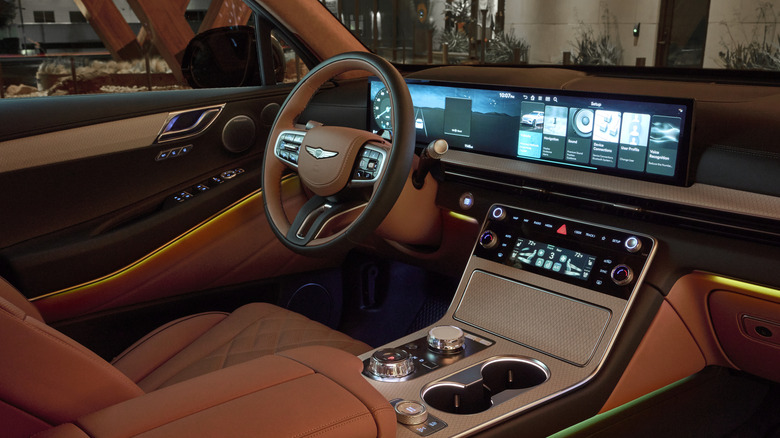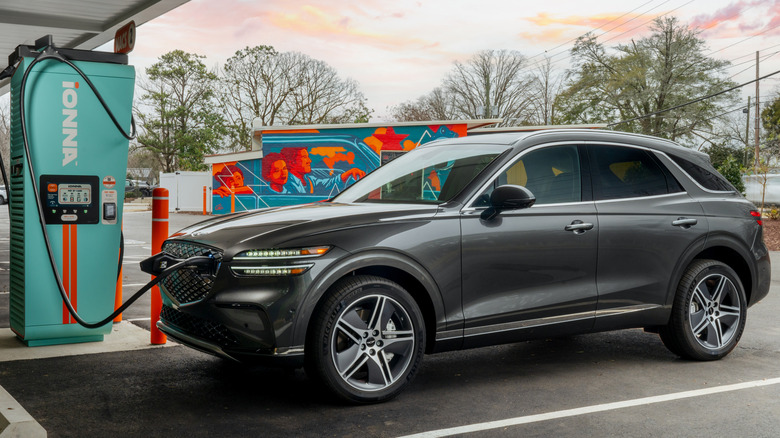Where Are Genesis Cars Made, And Who Owns The Company Today?
Genesis is a relatively new luxury automaker from the land of K‑pop and kimchi, and like those cultural exports, it's gaining global attention fast. Backed by Hyundai's industrial might, Genesis is now on a mission to irritate conventional luxury automakers like a persistent mosquito on a warm, humid afternoon.
Just coming off its best sales year so far, Genesis sold 75,003 cars sold in 2024 as per information compiled by CarPro — an 8% year‑over‑year increase over 2023's 65,398 vehicles. To put yearly sales into perspective, that's neck-and-neck with Porsche, and around 17,800 more cars than Infiniti, Nissan's luxury branch. Genesis, with its initial introduction in 2017 as a brand, has not completed a decade in the market. However, overtaking a much older and established rival brand like Infiniti in sales is an extraordinary feat.
Genesis Motors is to Hyundai what Lexus is to Toyota, or Acura is to Honda — an upmarket luxury wing of its mainstream brand. Sold globally, most of the models currently on sale like the G70, G80, GV60, G90, and GV80, are manufactured in Hyundai's facility in Ulsan, South Korea. The only exception is the GV70 electric crossover, which is manufactured in Hyundai's Montgomery plant in Alabama, United States.
Why Genesis isn't just a fancy Hyundai
Before the Genesis brand split, Hyundai introduced the Genesis as a model name in 2008 with its flagship luxury sedan. It was Hyundai's bold move into the executive segment, directly competing with the Audi A6, Mercedes‑Benz E‑Class, and BMW 5 Series. A year later came the Genesis Coupe, Hyundai's first high‑performance car, aimed at shaking up the sports car crowd. These early years felt like Genesis as a brand was still figuring itself out.
Post-brand split, Genesis found its identity. While Hyundai — a South Korean automaker — may own Genesis Motors, its vehicles are designed and manufactured separately from Hyundai models. With the introduction of models like the G70, G80, and flagship G90, the brand made it clear that it was going after the big players. Following Lexus' footsteps, Genesis delivers the kind of high-end luxury expected from European brands, but with a twist of Korean innovation.
Design-wise, comparisons to Bentley aren't just flattery. Many of Genesis's designers are ex‑Bentley, and the influence is apparent, especially in the G90 sedan and GV80 SUV. Knurled knobs, quilted Nappa leather, electrically operated soft-close doors, and Road Preview suspension tech all add to the opulent experience. It's worth noting that the GV80's imposing design, smooth yet potent V6 powertrain, and premium interior earned a perfect 10 in SlashGear's review of the GV80, with the only complaints being the lack of an electric variant and a slightly cramped third row.
What's next for Genesis?
With its ever-expanding model range, including both ICE and electric variants, Genesis aims to claim its slice of the $695.9 billion luxury market pie and chip away at the market share of legacy automakers like Mercedes and BMW. Despite the brand's growing success, it remains unfamiliar to many drivers. As Claudia Marquez, Chief Operating Officer at Genesis Motor North America, told CNBC, brand "awareness" continues to be Genesis' most significant challenge.
While Genesis models offer impeccable value, they still don't carry the same brand cachet as heritage giants — it's tough to convince a lifelong Mercedes or BMW enthusiast to suddenly consider a Genesis model. Availability is another hurdle: According to ScrapeHero, as of May 2025, Genesis has 224 dealerships scattered across 39 states and 214 cities in the U.S. — far fewer than BMW's 368 and Mercedes's 387 dealerships. That's a big gap, and until Genesis closes it, reaching wider audiences and building lasting loyalty will remain a challenge.
That said, as long as Genesis keeps delivering stylish, well-crafted vehicles that sometimes get mistaken for Bentleys — not a bad problem to have — the Korean luxury brand will keep gaining ground.


